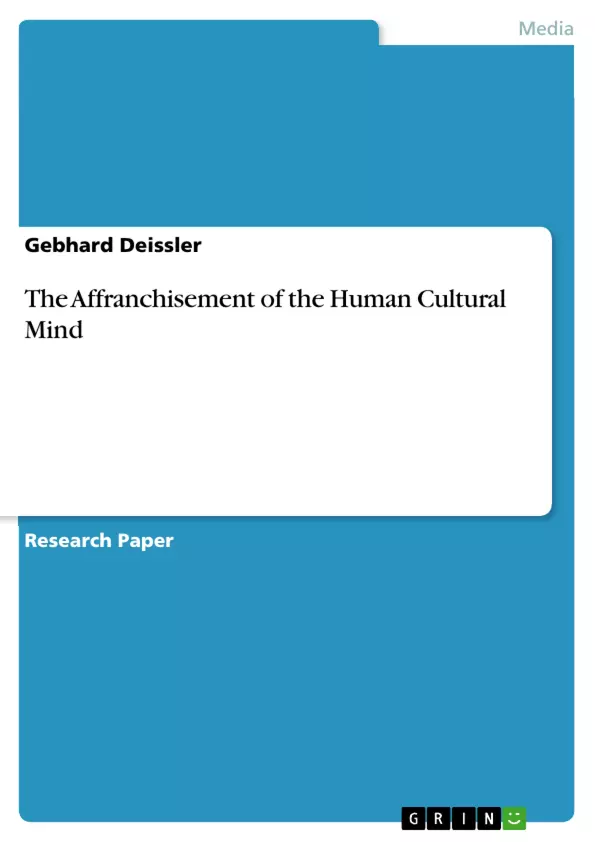A quest for human cultural empowerment and affranchisement based
on a review of prevalent intercultural philosophy and practice and a transcultural/transdisciplinary inquiry into their enhancement with regard to imperatives of the global era; special terminology in detail.
Inhaltsverzeichnis (Table of Contents)
- The Quest for Human Cultural Empowerment and Affranchisement
- A Review of the Inter- and Transcultural Philosophy and Practice
- The State of the Intercultural Art and Science: On human relativity in intercultural research
- Enhancing the Intercultural Art and Science: Sources, models and the achievement of supreme cultural intelligence
- Inter-/Transcultural Reference Terminology: A terminological resource for the transcultural manager with bilingual definitions and explanations
Zielsetzung und Themenschwerpunkte (Objectives and Key Themes)
This work aims to explore the concept of human cultural empowerment and affranchisement within the context of inter- and transcultural philosophy and practice. It delves into the current state of intercultural research, highlighting the significance of human relativity in this field. Additionally, the text examines sources and models for enhancing intercultural understanding and achieving supreme cultural intelligence.
- Human cultural empowerment and affranchisement
- Intercultural philosophy and practice
- Human relativity in intercultural research
- Sources and models for enhancing intercultural understanding
- Achieving supreme cultural intelligence
Zusammenfassung der Kapitel (Chapter Summaries)
The first chapter, "The Quest for Human Cultural Empowerment and Affranchisement," emphasizes the need to understand the complete nature of the human mind, particularly the cultural dimension, to find sustainable solutions to human problems. It argues that neglecting the cultural aspect leads to incomplete and unsustainable solutions.
The second chapter, "A Review of the Inter- and Transcultural Philosophy and Practice," begins by examining the current state of intercultural art and science. It underscores the importance of human relativity in intercultural research and the need to acknowledge the cultural backgrounds of individuals when studying cultural phenomena.
The chapter continues by exploring sources and models for enhancing the intercultural art and science. This includes delving into the achievement of supreme cultural intelligence, which is a critical aspect of navigating cultural differences effectively.
Schlüsselwörter (Keywords)
The key themes and concepts explored in this work include human cultural empowerment, affranchisement, inter- and transcultural philosophy and practice, human relativity in intercultural research, sources and models for enhancing intercultural understanding, and achieving supreme cultural intelligence.
Frequently Asked Questions
What is "human cultural empowerment" in this context?
It refers to the process of enabling individuals to understand and harness their cultural dimension to solve complex human problems sustainably.
What is the significance of "human relativity" in intercultural research?
Human relativity emphasizes that researchers must acknowledge their own cultural backgrounds, as these influence how they perceive and interpret other cultural phenomena.
How is "supreme cultural intelligence" achieved?
It is achieved through a transdisciplinary inquiry into intercultural philosophy and the adoption of models that enhance one's ability to navigate cultural differences effectively.
What does the "terminological resource" in the work provide?
It offers a bilingual set of definitions and explanations for inter- and transcultural terminology specifically designed for transcultural managers.
Why is neglecting the cultural dimension problematic?
The work argues that solutions to global problems are incomplete and unsustainable if they do not account for the complete nature of the human cultural mind.
- Arbeit zitieren
- D.E.A./UNIV. PARIS I Gebhard Deissler (Autor:in), 2012, The Affranchisement of the Human Cultural Mind, München, GRIN Verlag, https://www.grin.com/document/192107



